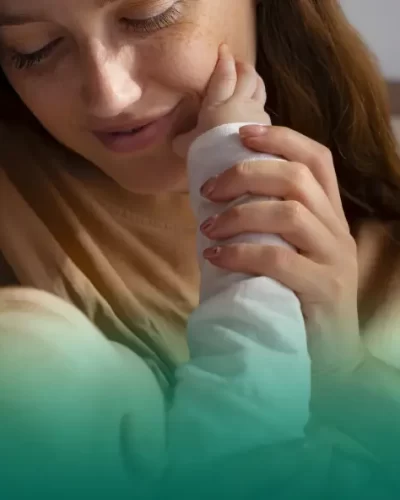Formula feeding lowers IQ
A 1999 study found that the IQ of children who received breast milk in early childhood was 3 to 5 points higher than that of children who were formula-fed. This effect was also associated with duration of breastfeeding, highlighting the importance of breastfeeding for children’s intelligence development. So we conclude that this is not a myth.
Research conducted in 2021 reached a similar conclusion: babies who received breast milk for more than a year had higher IQs later in life compared to their formula-fed counterparts.
Bottle feeding causes colic
In children who were fed formulas, more intense manifestations of colic are observed. Colic is an attack of abdominal pain associated with the immaturity of the digestive system and central nervous system of infants. It is believed that breastfeeding can reduce the severity of colic, but this claim requires more scientific research to confirm.
The researchers conclude that there is no significant difference between feeding an infant breast milk, formula, or a combination of the two.
Today, the scientific community does not have effective treatments for colic. However, the good news is that these conditions do not pose a serious threat to children’s health.
Feeding your baby formula may cause weight gain or obesity in the future.
Research shows that children who are fed breast milk have a 15-25% lower risk of becoming obese at school age compared to their formula-fed counterparts.
This is explained, according to scientists, by the higher protein content in infant formula compared to breast milk. In addition, children who are breastfed usually have better control over the amount of food they eat and are less likely to overeat.
Bottles must be sterilized
Standard recommendations for sterilizing bottles before each feeding are changing among modern pediatricians. It is believed that for a healthy, full-term infant, re-sterilization before each feeding is not necessary. However, if the baby was born premature or has any health problems, sterilizing the bottles may be necessary.
Feeding bottles and nipples should only be sterilized before their first use after purchase. Next, just rinse them with warm water and detergent, ensuring that the detergent is thoroughly rinsed off.






